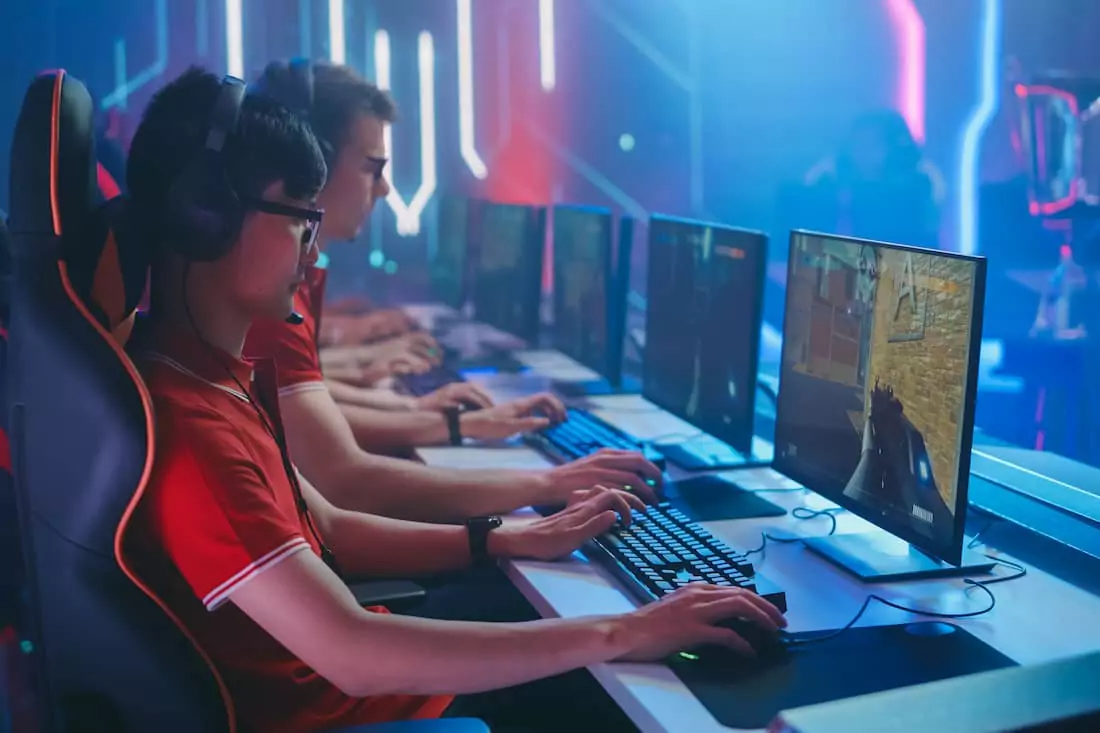Savor the Flavors: Bombay Beijing Fine Foods
Exploring the fusion of Indian and Chinese cuisines with delicious recipes and culinary tips.
Game On: How the Competitive Gaming Economy is Changing the Way We Play and Pay
Explore how the booming competitive gaming economy is reshaping gaming experiences and payment models. Level up your knowledge today!
How Esports Sponsorships are Shaping the Future of Competitive Gaming
The landscape of competitive gaming is evolving rapidly, and esports sponsorships are playing a pivotal role in this transformation. As more brands recognize the potential of reaching a young, tech-savvy audience, they are investing heavily in partnerships with esports teams and events. These sponsorships not only provide financial support for teams but also help in building brand loyalty among fans. According to a recent study, esports sponsorships are projected to exceed $1 billion globally by 2025, illustrating the increasing value placed on competitive gaming as a viable marketing channel.
Moreover, the impact of esports sponsorships goes beyond mere financial investments. They facilitate innovation in the gaming industry, encouraging the development of new titles and gaming platforms. Brands often engage in promotional activities, including tournaments and special events, which create immersive experiences for fans. As companies continue to leverage these sponsorship opportunities, they contribute to a thriving ecosystem that boosts player engagement and fan communities, ultimately ensuring that competitive gaming remains at the forefront of entertainment.

Counter-Strike is a highly popular tactical first-person shooter game that has captivated millions of players around the world. Players compete in teams to complete objectives, such as defusing bombs or rescuing hostages. For those looking to enhance their gaming experience, a csgoroll promo code can provide exciting benefits and in-game rewards.
The Rise of In-Game Economies: How Virtual Currencies are Transforming Gameplay
The gaming landscape has dramatically evolved with the advent of in-game economies, where virtual currencies play a pivotal role in shaping players' experiences. Unlike traditional gameplay, where progression was often linear and rewards were predetermined, today’s online multiplayer environments utilize **virtual currencies** to create complex economic systems. Players can earn, trade, and spend these currencies, influencing not only their personal gameplay but also the game’s overall ecosystem. This shift encourages **player engagement**, and fosters community interactions, as each player navigates the intricate dynamics of supply and demand within these virtual marketplaces.
Furthermore, the introduction of virtual currencies has led to a rise in user-generated content and player creativity. Many games now allow users to create items or experiences that can be sold for in-game currency, effectively giving players **financial stakes** in their gaming worlds. This trend not only enhances the gameplay experience but also promotes a sense of ownership and investment among players. As we look to the future, it’s clear that the rise of in-game economies is not just a passing fad; it’s a fundamental shift in the way we understand play and interaction in the digital space.
Are Microtransactions Ruining Competitive Gaming? Exploring the Debate
The rise of microtransactions in gaming has sparked heated debates among players, especially in the realm of competitive gaming. Critics argue that these small, yet frequent purchases often lead to a pay-to-win model, where players who invest more money gain significant advantages over their less affluent counterparts. This imbalance can undermine the essence of fair competition, as skill becomes secondary to financial investment. As a result, many players feel frustrated, believing that their hard-earned skills are overshadowed by the availability of premium upgrades and exclusive content.
On the other hand, proponents of microtransactions claim that they help developers maintain and support ongoing game development, ultimately improving the overall gaming experience for all players. By providing optional content and cosmetic upgrades, they argue that these transactions allow gamers to tailor their experience without disrupting gameplay balance. This opens the door for developers to continually update and enhance games post-launch, which can be beneficial for the community. However, the debate remains ongoing as players weigh the ethics and impact of microtransactions on the competitive landscape.